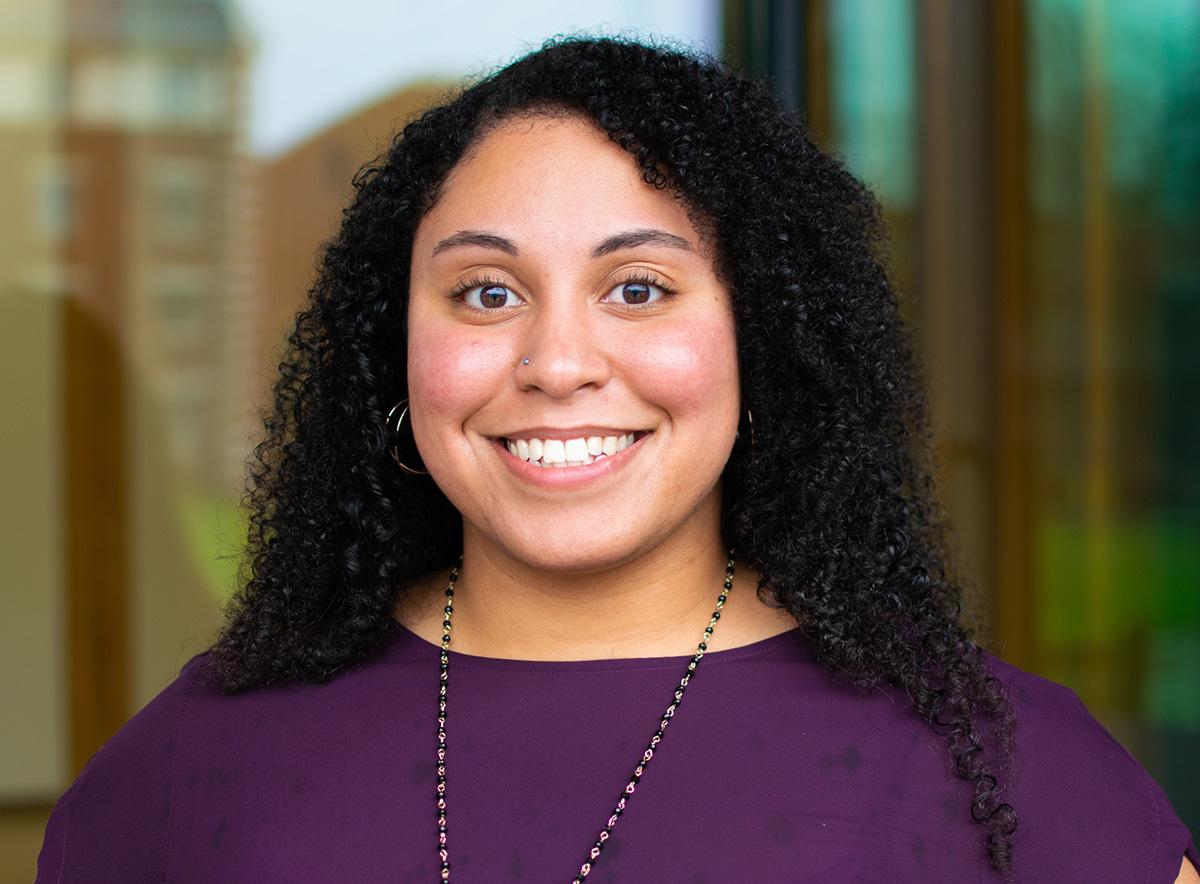
by Melissa L. Barnes, PhD Candidate, Department of Psychology
The nation held an unofficial day of remembrance for George Floyd on May 25, 2021, one year after he was murdered by a police officer. If we held a day of honor for all of the Black men, women, transgender, and nonbinary folks who have been physically or sexually assaulted by police officers, we would mourn and remember every day of the year. On March 30, we would mourn Mya Hall; July 13 would be Sandra Bland’s day; August 9 would honor Abner Louima; and at least 13 days would be reserved for each of Daniel Holtzclaw’s sexual assault victims.
Gendered and racialized police violence in the United States is a continuation of racial terror and control that began in the era of slavery for Black Americans. Police violence is both racialized and gendered in that Black women are more often sexually victimized and Black men are more often physically victimized by law enforcement. The first most cited grievance against law enforcement is excessive force, which includes physical violence and homicide. The second most cited grievance against law enforcement is sexual misconduct, which includes rape, child molestations, and other types of sexual misconduct.
Within the past few years, Black Americans have been talking more publicly about how indirectly experiencing discriminatory police violence through the media impacts our mental health and well-being. Gabrielle Union, a Black actor, described in an interview that “waking up every day to the brutalization, the murder of Black bodies…is like one big anxiety attack…it just feels like terror in my body.” Indeed, media’s representation of trauma and violence can be traumatizing within itself. However, vicarious trauma is only one piece of Black Americans’ indirect experiences of police violence.
I have spoken and written about how betrayal trauma, vicarious trauma, collective trauma, and institutional betrayal individually describe parts of reading or watching the news of yet another Black person being victimized by police. As a culmination of four years of work I developed a theoretical framework, Collective Ongoing Betrayal Trauma, that merges these four concepts within an intersectional perspective to assess Black men and women’s experiences of gendered and racialized police violence.
Through my dissertation, I empirically explored the framework of Collective Ongoing Betrayal Trauma with a vignette study that involved 1,270 Black Americans. The study comprised five different vignettes, with each participant reading one of the five vignettes. The vignettes described an incident between a civilian and a police officer. One vignette was a control vignette that depicted an unidentified civilian who received a speeding ticket from a police officer. The four “active” vignettes had two components that varied: 1) the victim’s gender was either man or woman and 2) the type of violence described was either a gunshot or a sexual assault perpetrated by the police officer. The race of the victim was described as “Black” for all four active vignettes. These vignettes mirrored the experiences that Black Americans have when they learn about discriminatory police violence through news media, social media, or other types of media. Participants also responded to multiple questionnaires intended to assess the impact of reading one of the five vignettes. The topics of the questionnaires included: mental health (depression, anxiety, anger, hypervigilance, etc.), gender and racial identity, institutional betrayal, and collective trauma.
Results from this vignette study were, in many ways, consistent with what I predicted. When police violence was described in a written format, gender (man/woman) and the type of violence (sexual/physical) that occurred impacted Black Americans’ experiences of reading about the incident.
Largely, participants in the study had the strongest reactions to descriptions of Black men being physically victimized by a police officer. Psychological distress, racial identity, and gender identity were significantly impacted by the description of a Black man being physically victimized.
These patterns were not seen when the incident was described as a Black man being sexually assaulted or when the victim was a Black woman.
Police physical violence incidents were experienced as more of a collective trauma than police sexual violence incidents.
Also, women participants endorsed more institutional betrayal behaviors related to the description they read than men participants.
Institutions can participate in courageous acts to intervene on police violence. Dr. Jennifer Freyd, founder of the Center for Institutional Courage, has outlined 10 steps organizations can take to buffer against additional harm after an act of violence occurs. Those with institutional power can bear witness, be accountable, and genuinely apologize for historical and current police violence. Third-party entities can demand increased transparency from police departments about the actual frequency of physical and sexual violence incidents. Institutions could also commit long-term resources to the tireless call for defunding, or reallocating funds from, law enforcement and the prison system to public health services.
Research on Collective Ongoing Betrayal Trauma can help progress the #blacklivesmatter, #sayhername, and #saytheirnames movements by 1) recognizing the significant negative impact of indirect exposure to physical and sexual police violence, and 2) advocating for institutionally courageous acts to intervene on discriminatory police violence.
Ample gratitude to the following funding sources, without which my dissertation data collection would not have been possible: Jennifer M. Gómez, Wayne State University Start Up Funds; American Psychological Association (APA) Division 56 Trauma Psychology Cultivating Healing, Advocacy, Nonviolence, Growth, and Equity (CHANGE) Grant; University of Oregon Division of Equity and Inclusion Dissertation Award; University of Oregon Center for the Study of Women in Society (CSWS) Summer Writing Fellowship; University of Oregon Graduate School Special Opportunity Grant; and University of Oregon Psychology Department Committee for an Inclusive Community.
—Melissa Barnes received the 2020–21 Graduate Writing Completion Fellowship from CSWS.

